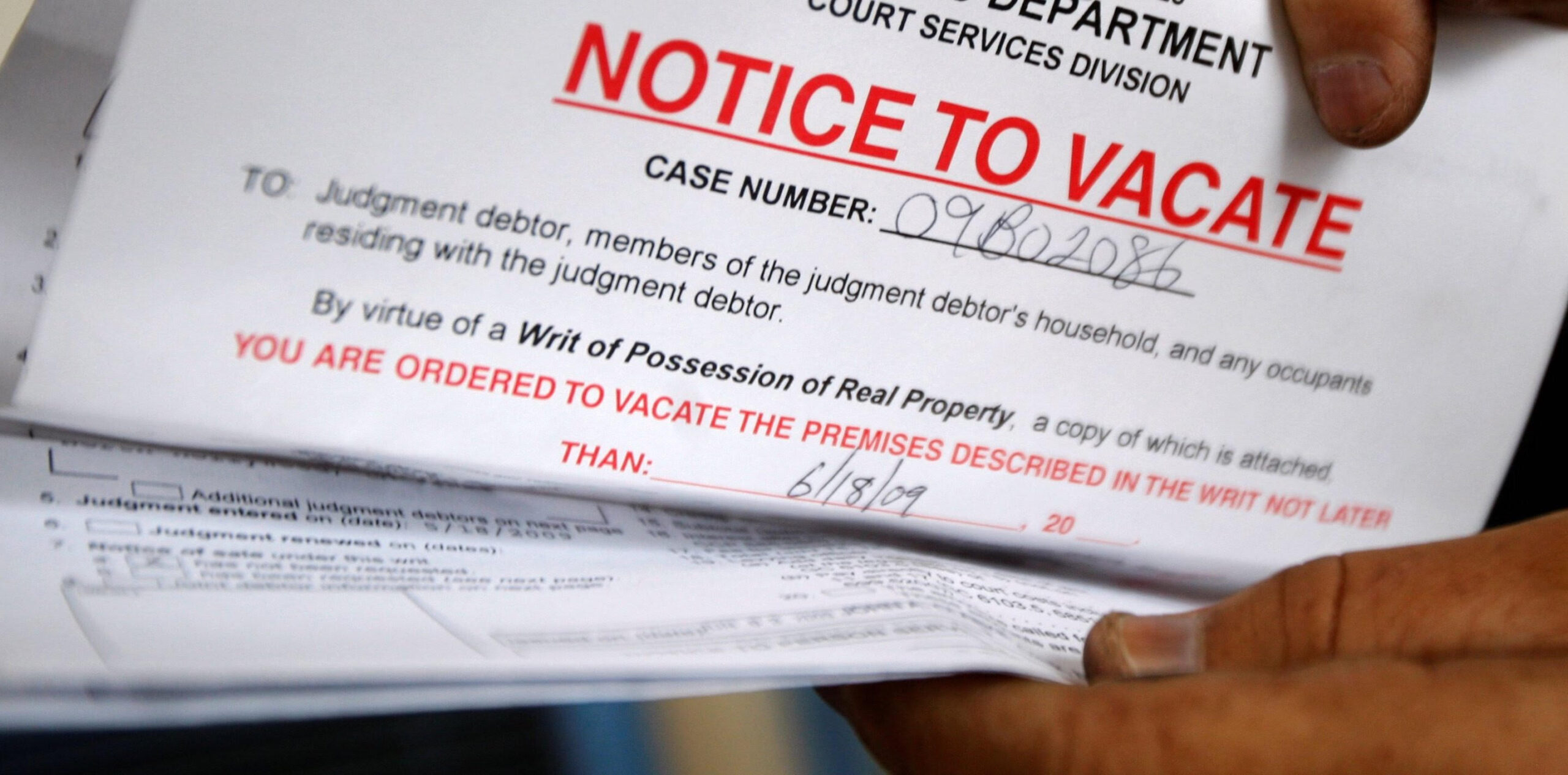
PROSPECT HEIGHTS — The Right to Counsel NYC coalition is calling on Mayor Eric Adams to triple the amount of his proposed 2024 budget that pays lawyers to represent indigent tenants in housing court cases.
New York City passed a law in 2017 guaranteeing legal representation in housing court for tenants facing eviction. Since 2020, 84% of tenants who received lawyers through the right-to-counsel (RTC) law won their cases and avoided homelessness, according to the coalition.
But now, 17,000 litigants who qualify for free lawyers still don’t have the promised legal representation. And their cases are moving forward in court anyway.
Bryan Fotino, tenant organizer for the CMS Tenant Advocacy Program, said his team operates a “court watch” strategy to let tenants know about their right to counsel and their right to request an adjournment until they finally get a lawyer.
Still, Fotino said, the CMS team encounters “a significant number of tenants” who have been denied their rights.
“Unfortunately,” Fotino added, “judges will not grant unlimited adjournments, which the Right to Counsel Coalition believes is a violation of the right-to-counsel law passed in 2017. Tenants are still being evicted having never had adequate representation.”
At present, the program has $110 million in contracts, and Adams’ budget would boost that number to $166 million. Still, Right to Counsel advocates say that the mayor’s pledge is woefully insufficient.
Instead, they demand it be increased by $351 million, which would bring the total to $461 million.
Adams issued his proposed 2024 budget April 26, and he has not yet commented on the demands to triple the funding for RTC. However, he has called for improving how the city pays nonprofits such as RTC-funded lawyers.
The shortage of lawyers for RTC has been blamed in part on insufficient pay and the processing of it. Consequently, many lawyers decline to be involved in the program.
“For too long, the city has relied on nonprofits to deliver essential services without holding up its end of the bargain,” Adams said. “The failure to pay our nonprofits in a timely manner has not only hurt our nonprofit sector, which is predominantly made up of black and brown workers, but also the New Yorkers who rely on their services.”
Housing court officials have said state law requires judges to keep cases moving. They added that tenants asking for a delay puts the court in danger of committing unconstitutional discrimination against defendants.
Still, court officials are not unsympathetic to tenants without lawyers.
“We are committed to supporting creative strategies to augment the availability of legal representation in housing proceedings to enable the speedy resolution of disputes and minimize resort to eviction,” said Court of Appeals Acting Chief Judge Anthony Cannataro, who oversees the housing courts.
The judge made his comments earlier this year in a “State Of Our Judiciary” speech in Albany.
“Many courts around the state have undertaken measures to facilitate increased access to self-help resources and legal representation in housing disputes,” he said.
Meanwhile, Fotino said CMS and the RTC coalition will work toward convincing housing court officials to slow down eviction filings and proceedings. They also call the passage of a statewide right-to-counsel law.
“We know having a lawyer is important,” Fotino said. “Following the passage of the city’s right-to-counsel law, evictions dropped by 40%.”
Luis Cardoso of Williamsburg is among tenants who benefitted from the free legal counsel arranged by the coalition.
“I fell behind on my rent due to an injury at work and my landlord started a case against me,” he said. “Initially, I went to court without legal representation and they said I had a month to solve the problem with my rent or be evicted.”
But, Cardoso said, the lawyer helped him negotiate an agreement with the landlord to cover the back rent with a payment plan.
“That was achievable for me,” he said. “It was a chaotic situation until I had legal representation. It would be good for tenants of this city to have legal representation, so that what happened to me does not happen to them.”
